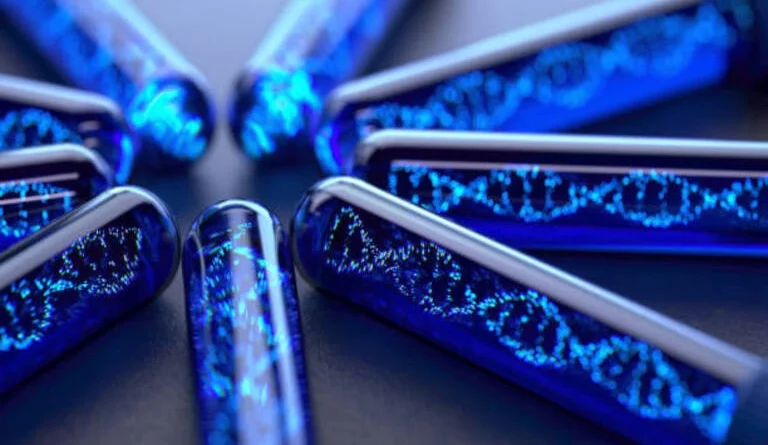Is AP Biology Hard? An Expert Analysis
AP Biology is one of the most sought-after Advanced Placement (AP) courses among high school students. However, it’s also a class surrounded by misconceptions and fear. Many students hesitate to enroll, asking themselves: Is AP Biology really that hard? Will I end up spending sleepless nights just trying to keep up? How can I prepare for such a demanding course?
In this guide, we’ll explore all of these questions and more — using reliable data and expert insights to give you a clear picture of what to expect. Also do read about AP syllabus and courses here.
Is AP Biology Right for You?
One common mistake students make when choosing AP courses is skipping the crucial step of evaluating whether the course aligns with their skills and academic goals. Every subject demands a certain set of abilities and interests. Before signing up for AP Biology, ask yourself:
- Is this course suitable for my interests and strengths?
- What does the subject require in terms of commitment and prior knowledge?
- What are the prerequisites for AP Biology?
- How will this course benefit my college applications and long-term career goals?
If you’re unable to answer these questions confidently, it might be wise to consider other AP options that are better suited to your academic profile.
Clearing the Myths: Is AP Biology Really That Difficult?
In this article, we will debunk common misconceptions about AP Biology — not based on opinion, but backed by real statistics and performance data. We’ll also share effective strategies to prepare for the AP Biology exam, helping you not only survive but thrive in the class.
Is AP Biology Really Hard? How Can You Tell?
To determine whether AP Biology is hard, we need to look beyond assumptions and analyze real statistics. Below are some key indicators that give us a clearer picture of the course’s difficulty level.
Fact 1: AP Biology Passing Rate
Contrary to popular belief, the AP Biology passing rate is relatively high. In 2024, 68.3% of students passed the AP Biology exam, which means more than two-thirds of students scored 3 or higher. This indicates that AP Biology is moderately difficult—neither too easy nor impossibly hard. Find out the detailed stats here.
Additionally, 16.8% of students earned a score of 5, which is comparable to at least 19 other AP exams that have similar or even lower percentages of top scorers.
What Do These Numbers Mean?
Two important points emerge from this data:
- AP Biology is a popular course, attracting a wide range of students. Since a large number of students with varying preparation levels take the exam, this can bring down the overall average—yet the pass rate remains strong.
- Conversely, a higher pass rate doesn’t always mean the exam is easy. In fact, many difficult AP subjects have high pass rates because they’re typically taken by well-prepared, highly motivated students. So, a 68.3% pass rate in AP Biology might reflect both the subject’s difficulty and the dedication of those who choose it.
Is the AP Biology Content Really Difficult?
There’s no doubt that AP Biology has a rigorous and extensive curriculum. One of the main reasons students find it hard is the sheer amount of memorization involved. You’ll need to learn the names, structures, and functions of organisms, biological systems, and key processes.
Unlike subjects like Physics, which are concept-heavy and application-driven, the course leans more toward system understanding and factual knowledge. While some students enjoy the content, others may find the memorization intense and monotonous.
Factors That Make AP Biology Hard
Here are some specific elements that contribute to the difficulty of AP Biology:
1. Extensive Syllabus
AP Biology covers a wide array of topics in cellular biology, genetics, evolution, ecology, and anatomy. Students often feel overwhelmed due to the pace and depth of content, especially since there’s less focus on real-world applications compared to other science courses.
2. Heavy Memorization
The subject requires learning hundreds of scientific terms and biological processes. If you’re not comfortable with frequent rote learning, this can be a major challenge.
3. Critical Analysis
Despite its focus on memorization, Biology also demands scientific reasoning and analysis. Students must apply what they’ve learned to new scenarios, especially in free-response questions and lab-related assessments.
4. High Workload
Expect a significant workload, including textbook reading, lab experiments, research assignments, and frequent quizzes. Time management becomes essential.
5. Prerequisite Knowledge
A strong foundation in basic biology and chemistry is crucial. Students who lack this may struggle with core concepts, making the course even harder to manage.
Conclusion: So, Is AP Biology Hard?
Yes — AP Biology is considered one of the more challenging AP courses, mainly due to its vast syllabus, high volume of memorization, and analytical demands. However, the pass rate shows that many students do succeed with the right preparation.
If you’re planning to take AP Biology, we recommend starting with an Introductory Biology course to build foundational knowledge. With dedication, time management, and effective study habits, AP Biology is absolutely manageable—and it can be incredibly rewarding, especially for students interested in medicine, biology, or environmental science.
Should You Take AP Biology? Questions to Ask Yourself
So, with everything said, it’s time to step back and reflect: Is it the right course for you? Choosing any AP class requires more than just interest — it demands an honest evaluation of your strengths, weaknesses, study habits, and long-term goals.
Before enrolling in AP Biology, ask yourself these key questions to help you decide:
Questions to Ask Yourself:
- Am I genuinely interested in biology and life sciences?
- Do I enjoy subjects that require memorization and detailed understanding?
- Am I comfortable handling a heavy workload alongside my other classes?
- Have I already studied introductory biology or have a solid grasp of basic science concepts?
- Do I plan to pursue a college major or career in health, medicine, biology, or environmental science?
- Am I good at time management and self-discipline?
- Do I perform well in analytical and lab-based assignments?
If your answer is “yes” to most of these questions, then AP Biology could be a great fit. If you hesitate or answer “no” to many, consider strengthening your foundation first or choosing a different AP course that aligns better with your academic profile and career goals.
Tips for Success in AP Biology
Once you’ve decided to take the course, here are some practical tips to succeed in AP Biology and stay on top of its challenges:
1. Start with a Solid Foundation
If possible, take an introductory course or review basic topics before diving into AP-level content. This helps you grasp complex systems more easily.
2. Use Smart Memorization Techniques
Biology requires heavy memorization. Use flashcards, mnemonics, concept maps, and active recall techniques like spaced repetition to retain terminology and processes.
3. Practice Regularly
Consistent practice is key. Work through past AP Biology exams, MCQs, and free-response questions (FRQs) to become familiar with the question patterns and expectations.
4. Seek Help When Needed
Don’t struggle in silence. Ask your teacher, tutor, or peers whenever a concept seems unclear. Use online forums or study groups for additional support.
5. Manage Your Time Wisely
The course demands time. Build a study schedule, break down chapters into chunks, and set weekly goals. This helps avoid last-minute cramming.
6. Connect the Dots
Biological systems are interconnected. Try to see patterns and relationships between topics like cellular respiration, DNA replication, and evolution.
7. Focus on Understanding, Not Just Memorization
Instead of rote learning, aim to understand the “why” and “how” behind biological processes. This leads to better retention and higher exam performance.
FAQs
Yes, AP Biology is considered a challenging class due to its wide-ranging syllabus, intense memorization, and analytical thinking required for labs and exams. However, students who are passionate about science and stay consistent with their studies often find it manageable and rewarding.
In 2024, the AP Biology exam pass rate was 68.3%, meaning over two-thirds of students scored 3 or higher. While not the easiest, it’s moderately difficult, especially for students without a strong background in biology or time management skills.
The easiest AP classes often include AP Psychology, AP Environmental Science, and AP Human Geography, mainly due to lighter workloads and higher pass rates. However, “easy” varies depending on your interests and strengths.
Students often find cell communication, molecular genetics, and photosynthesis to be the most difficult AP Biology topics. These units involve complex processes and detailed diagrams that require deep understanding.
That depends on the student. AP Biology requires more memorization, while Physics is more math- and concept-based. If you’re good at math and logic, you might find Physics easier. If you’re better at memorization and understanding systems, Biology might be more manageable.
Courses like AP Chemistry, AP Physics C, and AP Calculus BC are often ranked among the hardest due to their advanced math and science concepts. AP Biology is tough, but not typically the hardest compared to those.
Absolutely — AP Biology can boost your GPA, college applications, and career readiness, especially if you’re interested in healthcare, life sciences, or environmental fields.
It’s highly recommended to take a basic biology course first. AP Bio assumes you already understand foundational concepts and builds on them.
Most students need 5–8 hours of study time per week, including reading, reviewing notes, and doing practice questions. During exams, this time may increase.
The AP Biology exam includes multiple-choice questions (MCQs) and free-response questions (FRQs). It tests your knowledge of biological systems, data analysis, and experimental design.
Yes, AP Biology includes hands-on and virtual labs, which are essential for understanding core scientific principles and for performing well on the exam.
Use tools like flashcards, concept maps, spaced repetition (Anki), and active recall techniques. Group study and explaining topics to others also helps retention.
Most colleges award credit for a score of 4 or 5, but some accept a 3. Always check your target college’s AP credit policy.




